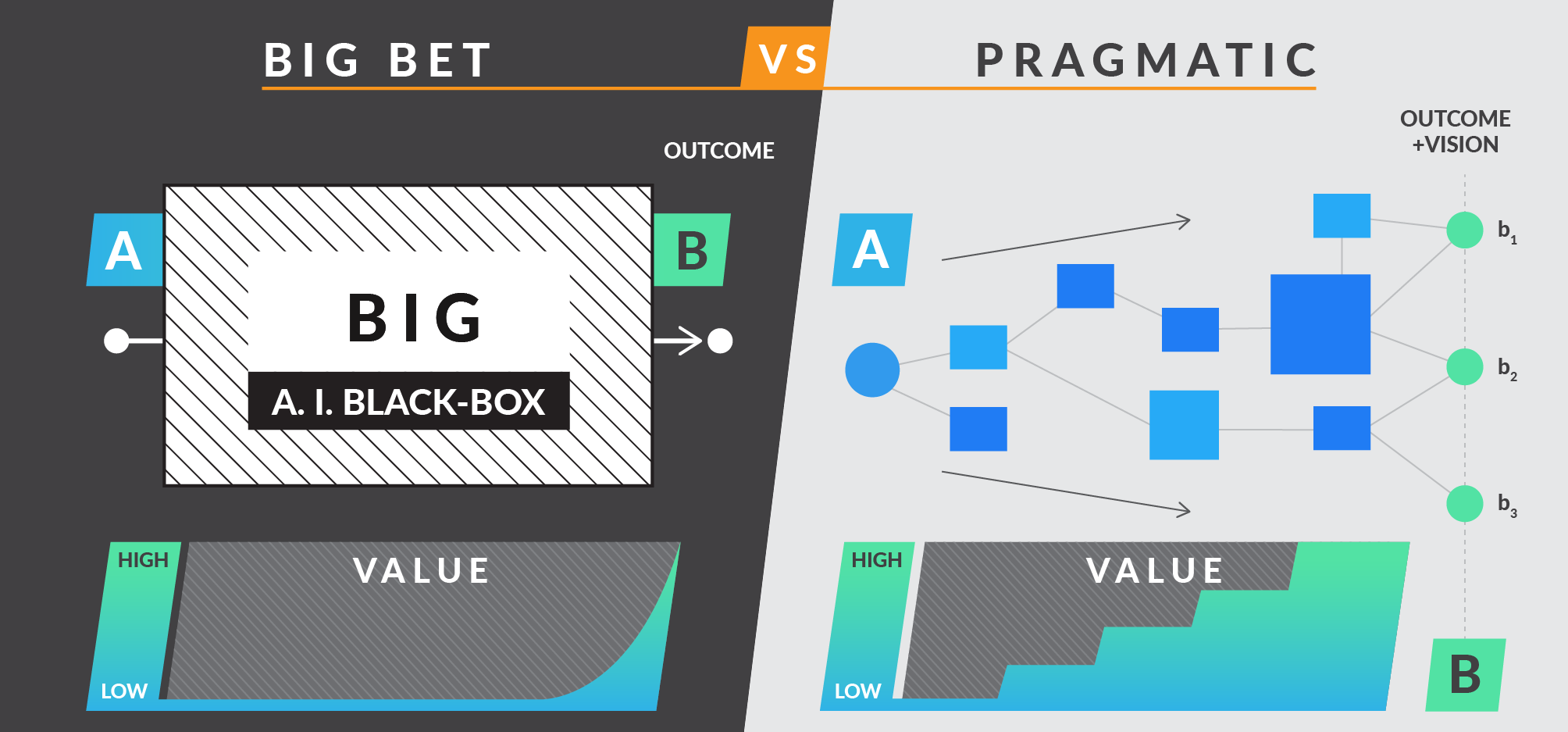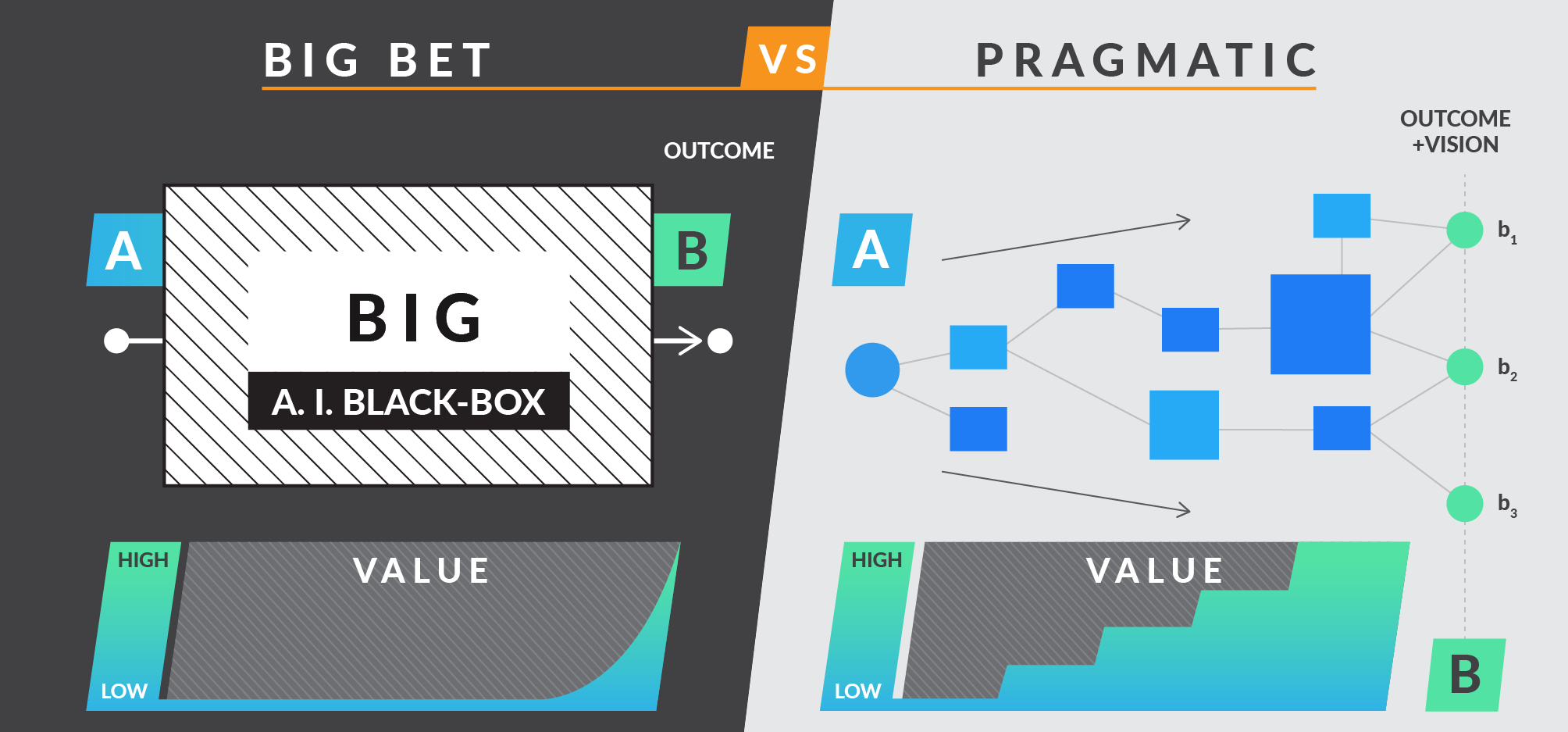The Alluring and Very Risky Black Box of Cognitive Solutions


In today’s rapidly evolving marketplace of intelligent software tools, businesses are showing increasing interest in cognitive applications that display elements of true Artificial Intelligence (AI) and machine learning. The sophistication and capabilities of these systems is raising the bar of expectations – potentially to unrealistic levels.
In this environment of excitement, enterprises looking to deploy cognitive computing risk succumbing to the allure of grandiosity and the promise of the dramatic long-term breakthrough. Those pursuing this strategy are investing significant sums into two- or three-year projects designed to deliver truly remarkable results. The problem with this strategy is two-fold: first, the results may fall far short of projections, meaning that the investment will be largely wasted; second, the business, having committed to a long-term course of action that fails to deliver, finds itself that much farther behind the competition.
As I argue in a new column in Outsource magazine, the best bet for cognitive is an aggressive pragmatism characterized by short-term, quantifiable goals and specific outcomes that support a broader strategy. Potential examples include using intelligent computers to diagnose and solve network and desktop problems, or the micro-automation of various processes and functions, where AI provides building blocks that connect to the big picture.
The takeaway: beware the cognitive “visionary” gazing at the majestic, fog-shrouded mountain. Rather, place your bets on incremental improvement over the short term, delivered with an eye to the big picture.


